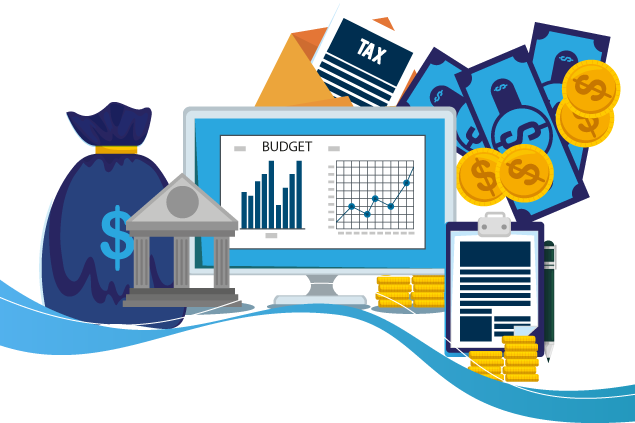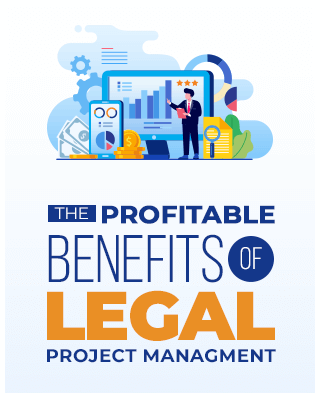Getting started: overhead costs and your budget
Before you can make strategic, informed budgeting decisions for each matter, you need to have a firm sense of your law firm’s overhead expenses. That’s because only some of the costs associated with running your firm are directly related to managing client matters. The revenue you bring in from matters won’t help your firm make a profit unless it also covers your practice’s other operating expenses, including:
- Rent and utilities for your office
- Internet and software fees
- Website hosting
- Travel expenses
- Marketing costs
- One-time expenses such as hardware purchases
That can seem like a lot to accurately calculate, but having a clear picture of your monthly overhead costs is essential to successful budgeting.
Fixed expenses and fees: how to calculate
You can start by tallying the fixed expenses that stay the same from month to month, including expenses such as:
- Rent and utilities for your office
- Software subscriptions
- Website hosting fees
- Recurring bank fees
Then you can allot an additional budget for variable and one-time costs such as:
- Travel fees
- Marketing costs
- Office hardware purchases
- Postage for mailed documents
As a final step, you should also add a bit of extra cushion each month to help you account for unexpected additional expenses. If you feel like you’re still struggling to understand where your firm’s money is going, most legal practice management software will include budgeting and reporting tools to help you track and understand your overhead expenses. The end result? More accurate and more efficient tallying, tracking, and analyzing of your average expenses month over month.
Calculating matter budgets
Once you understand your law firm’s overheads, you can start creating matter budgets that will ensure profitability for your firm. For each individual matter, start by building out a map of the specific phases and tasks required to complete the matter. This map should also include the costs associated with each phase and task (i.e., the hours and hourly rates associated with each attorney and staff member who will work on the matter).
Indirect costs and your profit margin
Building out a complete map and time budget for the matter will help you understand the direct costs to your law firm—but before you set your matter budget, you’ll also need to account for the indirect costs of running your firm (i.e., the overhead costs discussed above) and ensure that you’re including enough of a profit margin to create substantive, reliable profits for your practice. Usually, this involves calculating the total matter cost for your firm by adding a set percentage representing your firm’s overhead costs to the direct costs of completing the matter. This total matter cost can then be added to your profit margin (or “mark-up”) to arrive at a final client fee that will cover the costs of completing the matter while still earning a profit for your firm.
Applying matter budgeting
If all of this seems like an awful lot of effort to calculate, it’s because it is—or at least it can be. Many law firms shy away from offering flat fees and alternative fee agreements for this very reason: it’s simply too much work to painstakingly calculate whether or not a matter will be profitable once the dust settles. And even if your firm’s profitability calculations are accurate, the profits you hoped to see from a matter can quickly disappear if even one of your attorneys significantly exceeds the number of hours allotted to them in your initial budgeting calculations. Thankfully, there are ways to meet client demand for alternative fee arrangements without risking unprofitable matters—or spending hours each day running financial calculations. The budgeting and time management features included in a legal practice management software can help you ensure profitability, even when offering fixed fees.
How TimeSolv can help
Our legal practice management software is designed to take the guesswork out of matter budgeting. TimeSolv allows your law firm to quickly estimate legal matter costs and automatically calculate profitable fixed fee arrangements based on allotted hours and hourly rates, ensuring both transparency and consistent profitability. Our software tools can also provide you with budget reports to help you track matter-related expenses and stay on target to complete the matter within budget. Once you’ve built out your matter plan and budgeted out your hours, TimeSolv’s budgeting capabilities can even prevent your timekeepers from exceeding their time allotment. If a member of your team tries to make a time entry that exceeds their budgeted hours, TimeSolv will automatically alert them that they’ve exceeded their budget for the matter. You can also easily configure your law firm’s budget to prevent these time entries completely unless the budget is changed—an especially important feature for fixed fee matters where staying within your time budget is crucial. To see for yourself how TimeSolv can help your firm budget—and manage—your matters more effectively, contact us today or sign up for a free trial.
















